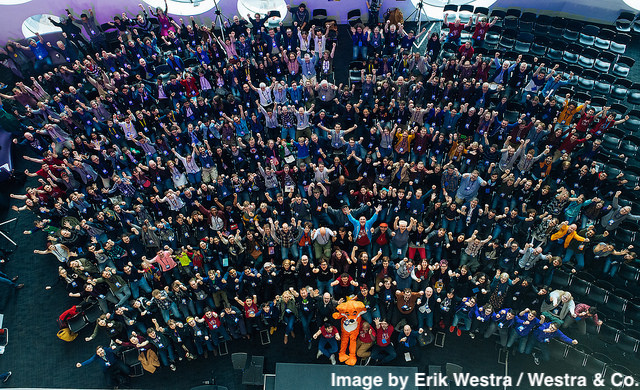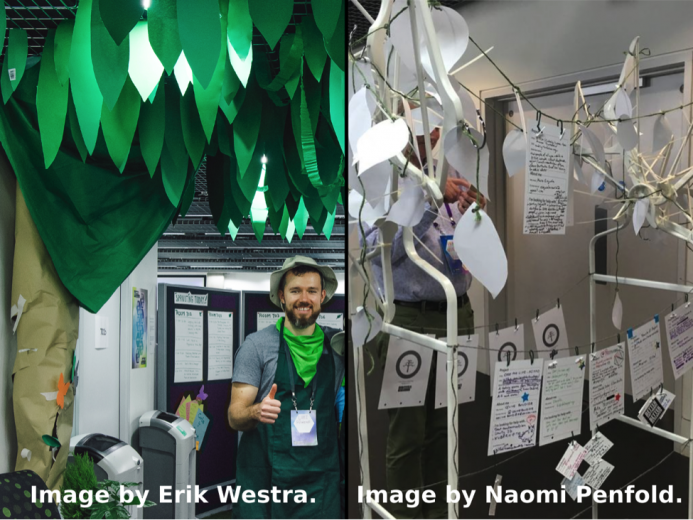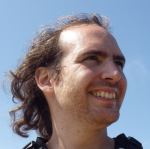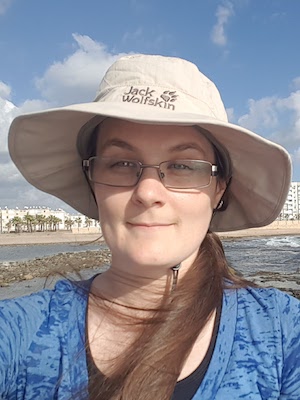MozFest 2017
Posted on 15 January 2018
MozFest 2017
 By Raniere Silva, Software Sustainability Institute, Yo Yehudi, InterMine, Cambridge University, David Pérez-Suárez, University College London.
By Raniere Silva, Software Sustainability Institute, Yo Yehudi, InterMine, Cambridge University, David Pérez-Suárez, University College London.
The Mozilla Festival, or MozFest for short, is “an annual gathering of passionate thinkers and inventors from around the world who meet to learn from each other and help forge the future of the web" as described in the Mozilla Wiki. It started in 2010 in Barcelona but has been hosted in London since its second edition, in 2011. The event is a multi-massive-parallel session of debates and workshops. We attended the gathering to share ideas with Mozilla Open Leaders and other attendees interested in open science. Keep reading to find our top six highlights of MozFest 2017.
Open science public park
Some unconferences only have a open agenda, but others reinvent the whole space where it is happening. MozFest is in the second group, as you can see from the photo montage below. The photo in the right shows Naomi Penfold's activity, called Open science public park, which consisted of the coolest bulletin board where attendees could ask for help or leave comments on previous bulletins. The bulletin tree also helped us to discover people that were attending MozFest who perhaps we didn't know so we could contact them and arrange to meet.

What resources do we need to break down barriers to open science?
Learning about barriers to #OpenScience from each other: researchers, artists, developers - peers. #MozFest pic.twitter.com/5EYTcf9eb6
— Egle Ramanauskaite ☣ (@Seplute) October 28, 2017Rachel Ainsworth facilitated a fantastic session, addressing the fact that just because people are interested in open science doesn’t mean it’s always easy to get started. As small groups, we brainstormed the benefits and barriers in open science, ending with three broad categories.
-
Culture: Given current culture, how do I inspire my colleagues to work more openly? Better training, outreach, & guides could help.
-
Data: Some data can’t be shared easily, but there are great ways to share it if you are allowed to, including Zenodo, Figshare, Dryad, and Dat.
-
Money: Can I really get grants to do open science? Some funders, like Wellcome, require open research.
We also came up with a great list of ways to increase open skills, and posed an interesting question: What is the "hello world" of open science?
Open leadership zone
Mozilla Open Leaders is a fantastic programme which helps to give promising project leaders skills and tips to work openly. They’re currently training the fourth cohort of project leads, and there was a zone dedicated specifically to displaying their projects, with a Kubi telepresence device allowing people to attend the session remotely. You can catch up on the projects on Mozilla Pulse, or apply for the fifth round of project leads now.
Dance and coding—web literacy
On the web literacy level were sessions about helping people to understand the Internet. The sessions ranged from making games with Wikipedia to how to fight fake news in the Library. David enjoyed the "Dance and Coding" event, where the two facilitators taught their public to code through dancing. This was a 60-minute condensed version of a one-day activity aimed at people who may find dancing easy but are scared of computers. During that session you create choreographies in teams, and bit by bit you are introduced to computational thinking notions like repeat loops and branching. The branching on your choreography was controlled by other teams via a set of lights connected in a circuit using Crumble. During the whole day version of the session that circuit is also built by the participant.
Automatic Twitter photo booth with the Raspberry Pi - youth zone
The youth zone was a wonderful place to get lost. Lots of sessions taught by kids for all levels. In this particular session, high school students from the Northern Ireland Raspberry Pi Jam group were teaching a group of adults how to connect an infrared sensor and a camera to the Raspberry Pi and write a small program in Python to connect to it, take a picture and post it on Twitter. The simplicity with which they explained all these steps was astonishing. There were many difficult concepts to get across, like the authentication with Twitter API, the opening of a file and the while command to take the picture when there was a change in the light.
Science needs open Source code
Yo Yehudi hosted a session to discuss open source code in research and academic environment. As she highlighted, researchers lack the practice of sharing code they write and this means potential errors and mistakes aren't picked up. Can we make open source code be seen as the gold standard? During the session, attendees listed reasons why people choose to make their academic code closed source, including a lack of skills, shame of sharing, patents/IP/commercial/copyright conflict and others. Attendees also enumerated some changes that could help to motivate people to share their code, such as it being a requirement from journals and funders, and training sessions that focus on helping to overcome the fear.
Final words
MozFest 2017 was, as Danielle Robinson write in another blog post, a unique experience filled with new projects, old friends and new colleagues. If MozFest 2018 doesn't clash with another event like it did this year, you can expect to meet us there.


